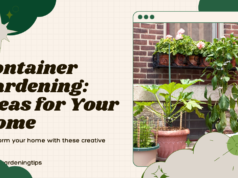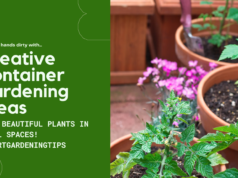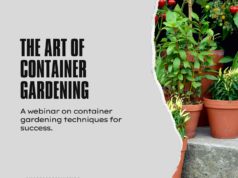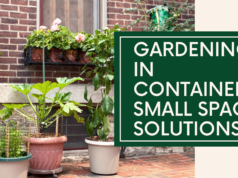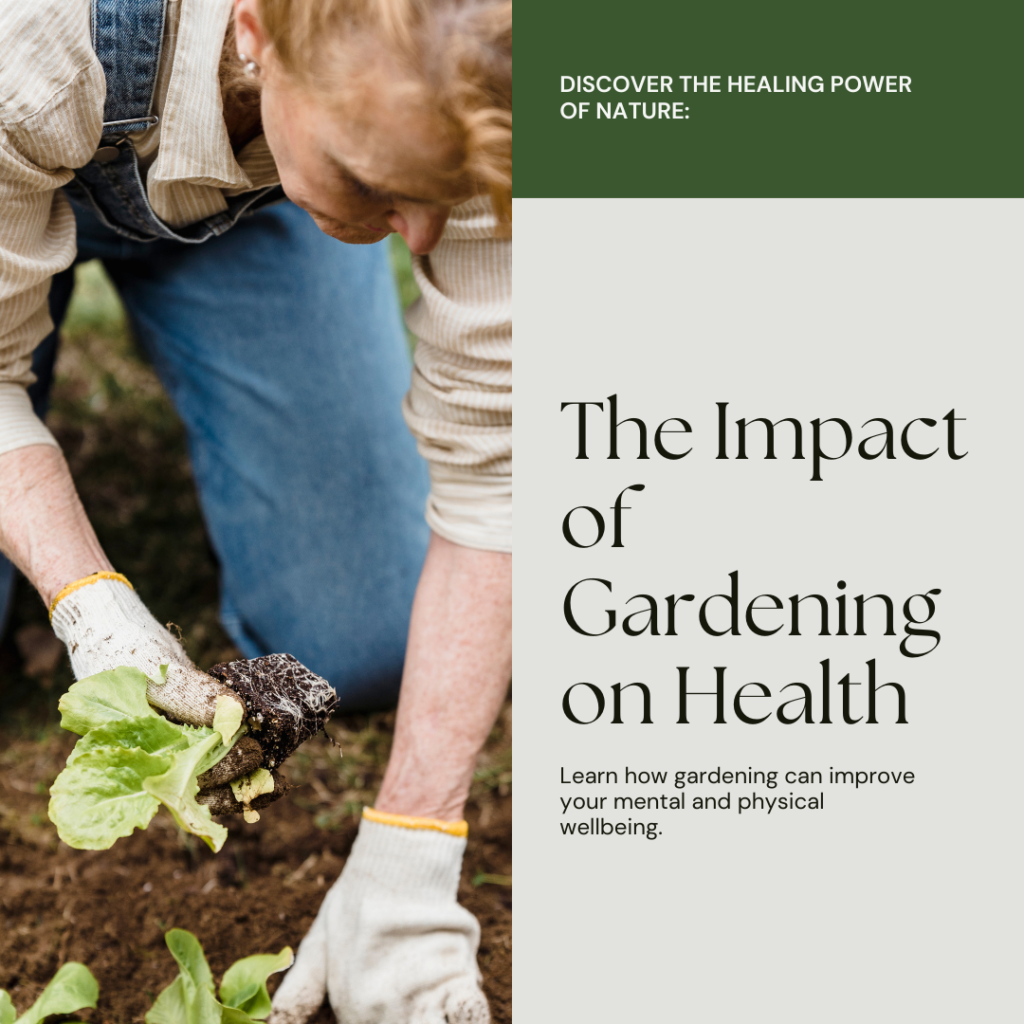
Welcome to our article on the beneficial relationship between gardening and health. Did you know that gardening can have a positive impact on your overall well-being? Not only does it provide you with fresh produce and beautiful flowers, but it also offers numerous physical, mental, and social benefits.
Key Takeaways:
- Gardening can contribute to physical fitness and well-being.
- Gardening has mental health benefits, reducing stress and improving emotional well-being.
- Gardening activities can support a healthy immune system.
- Participating in community gardening projects can provide social connections and a sense of community.
- Gardening plays a role in promoting environmental sustainability and conservation.
Physical Benefits of Gardening
Engaging in gardening activities not only allows you to cultivate beautiful plants and flowers but also provides numerous physical benefits that contribute to your overall well-being. From increased exercise to enhanced fitness levels, gardening is a versatile and enjoyable way to prioritize your physical health. Let’s explore how gardening can elevate your fitness routine and positively impact your overall physical well-being.
1. Exercise and Muscle Strength
Gardening involves various physical movements such as digging, lifting, and carrying gardening tools and materials. These activities provide valuable exercise for your muscles, contributing to increased strength and endurance. Whether it’s pulling weeds or planting new seeds, every gardening task engages different muscle groups, creating a well-rounded workout.
2. Cardiovascular Health
Gardening is a fantastic way to get your heart pumping and improve cardiovascular health. The repetitive motions involved in activities like raking, hoeing, and watering can elevate your heart rate and help strengthen your heart. Regular gardening activities can contribute to improved blood circulation and reduced risk of cardiovascular diseases.
3. Flexibility and Joint Mobility
The physical movements required in gardening, such as bending, stretching, and reaching, promote flexibility and joint mobility. These actions help to keep your joints supple and agile, reducing the risk of stiffness or joint-related discomfort. Gardening can be especially beneficial for individuals who struggle with conditions like arthritis.
4. Improved Balance and Coordination
Gardening often involves navigating uneven terrain, which challenges your balance and coordination. By carefully maneuvering through your garden, you can enhance your proprioception and spatial awareness. This improvement in balance and coordination can translate into better stability and reduced risk of falls in everyday life.
5. Stress Reduction
In addition to the physical benefits, gardening offers significant mental and emotional advantages. The act of gardening promotes relaxation and stress reduction, which can have positive effects on your physical well-being. Spending time in nature and nurturing plants has been shown to lower cortisol levels, reducing stress and promoting a sense of calm.
“Gardening is the perfect way to get moving while enjoying the beauty of nature. It’s a truly holistic approach to fitness and well-being.”
– Dr. Sarah Green, Exercise Physiologist
Gardening is not only a delightful hobby but also an effective way to prioritize your physical fitness and overall well-being. By engaging in gardening activities, you can enjoy the physical exercise, improved fitness levels, and stress reduction that gardening offers. So grab your gardening gloves and get ready to reap the physical benefits of connecting with nature.
Mental Health Benefits of Gardening
Gardening is not just a hobby; it can also have a profound impact on your mental health. Engaging in gardening activities can offer numerous benefits for your emotional well-being and help reduce stress levels, making it an effective therapeutic activity.
One of the key mental health benefits of gardening is its ability to promote relaxation and reduce stress. The simple act of tending to plants and being surrounded by nature can have a calming effect on the mind. Gardening allows you to disconnect from the pressures of daily life, providing a much-needed break from the constant stressors that can negatively impact your mental well-being.
“Gardening allows you to connect with nature and tap into its calming and rejuvenating energies.”
Research suggests that gardening can also improve mood and overall emotional well-being. The act of nurturing plants and watching them grow can provide a sense of accomplishment and purpose. It can boost self-esteem and promote a positive mindset, leading to a more fulfilled and contented state of mind.
In addition, gardening encourages mindfulness and present-moment awareness. When you engage in gardening tasks such as planting, weeding, or harvesting, you naturally focus your attention on the task at hand. This mindfulness practice can help reduce anxiety, improve concentration, and promote a sense of inner peace.
Furthermore, gardening as a therapeutic activity has been proven to be beneficial for individuals dealing with mental health challenges. It can serve as a form of therapy, providing a safe and nurturing environment for healing. Gardening allows individuals to express themselves creatively, fostering self-expression and promoting a sense of purpose.
Whether you have a small balcony garden or an expansive backyard, incorporating gardening into your routine can have a positive impact on your mental health. Take the time to tend to your plants, breathe in the fresh air, and connect with nature. The rewards for your well-being will be plentiful.
Are you curious about the mental health benefits of gardening? Here are a few key advantages:
- Reduced stress and anxiety levels
- Improved mood and emotional well-being
- Enhanced mindfulness and present-moment awareness
- Opportunity for self-expression and creativity
- Therapeutic benefits for individuals dealing with mental health challenges
| Mental Health Benefits of Gardening |
|---|
| Reduced stress and anxiety levels |
| Improved mood and emotional well-being |
| Enhanced mindfulness and present-moment awareness |
| Opportunity for self-expression and creativity |
| Therapeutic benefits for individuals dealing with mental health challenges |
Gardening and Immune Health
Did you know that gardening can do more than just beautify your surroundings? Engaging in gardening activities can also have a positive impact on your immune health and overall well-being. By connecting with nature and nurturing plants, you can support a healthy immune system and enjoy the benefits of a stronger defense against illnesses.
Gardening provides a unique opportunity to boost your immune health through various activities. Whether it’s planting seeds, tending to plants, or harvesting fruits and vegetables, these gardening tasks offer numerous benefits that promote a healthy immune system.
Connection between Gardening and Immune Health
When you engage in gardening, you expose yourself to a wide range of microbes present in the soil, plants, and surrounding environment. These beneficial microbes, known as “good bacteria,” have been shown to have a positive impact on immune health. By coming into contact with these microbes, your immune system becomes more resilient and better equipped to fight off infections and diseases.
Research has also shown that spending time in nature, such as in a garden setting, can reduce stress levels and promote a sense of well-being. Stress has been found to weaken the immune system, making you more susceptible to illnesses. Therefore, by incorporating gardening into your routine, you can effectively reduce stress and improve your overall immune function.
How Gardening Supports a Healthy Immune System
Gardening activities not only expose you to beneficial microbes but also provide various other health benefits that contribute to a stronger immune system:
- Gardening can be a form of physical exercise, helping to improve cardiovascular health, strengthen muscles, and enhance overall fitness.
- Spending time outdoors and absorbing sunlight can boost your vitamin D levels, which play a crucial role in supporting immune function.
- Growing and consuming your own fruits and vegetables can provide your body with essential nutrients, antioxidants, and fiber that are vital for a healthy immune system.
Incorporating gardening into your lifestyle can be a rewarding way to enhance your immune health and overall well-being. So why not start digging, planting, and nurturing your own garden today?
By coming into contact with beneficial microbes in gardening, your immune system becomes more resilient and better equipped to fight off infections and diseases.
Gardening as a Social Activity
Gardening goes beyond being just a solitary pastime; it can also be a powerful tool for building connections and fostering a sense of community. Engaging in community gardening projects not only benefits the individuals involved but also contributes to the overall social fabric of the neighborhood.
Community gardening projects offer numerous social benefits. They provide a platform for people from diverse backgrounds to come together, share their knowledge and experiences, and work towards a common goal. These projects create opportunities for interaction, collaboration, and the exchange of ideas, fostering a sense of belonging and unity among participants.
Moreover, community gardening projects have a profound environmental and social impact. By transforming vacant lots or neglected spaces into thriving gardens, these projects enhance the aesthetics of the community and promote environmental sustainability. They also contribute to local food production and access to fresh, organic produce, which can have positive effects on nutrition and food security.
Participating in community gardening projects allows individuals to develop valuable life skills, such as teamwork, communication, and problem-solving. It also promotes a sense of responsibility towards the environment and encourages a more sustainable approach to living.
In addition, community gardening projects serve as a catalyst for social engagement and cohesion. They create opportunities for individuals of different generations to come together and learn from one another. Gardens become spaces for intergenerational connections, where elders can pass on their wisdom and younger generations can learn valuable lessons about nature, food production, and sustainable living.
“Community gardens are spaces where people connect with one another, with nature, and with their own inner selves. It’s a place for growth, both in terms of plants and personal connections.”
The positive impact of community gardening projects extends beyond the immediate participants. These projects can revitalize neighborhoods, enhance community pride, and foster a culture of care and respect for the environment. They create opportunities for community events, workshops, and educational programs, further enriching the social fabric of the area.
Social Benefits of Community Gardening Projects
| Benefits | Description |
|---|---|
| Building Community | Community gardens foster connections and a sense of belonging among participants. |
| Promoting Diversity | Community gardens bring together people from different backgrounds, promoting diversity and inclusivity. |
| Environmental Impact | By transforming vacant lots into gardens, community projects improve the aesthetics of the neighborhood and promote environmental sustainability. |
| Social Engagement | Gardens serve as spaces for social events, workshops, and educational programs, fostering social engagement and cohesion. |
| Intergenerational Connections | Community gardens provide opportunities for people of different generations to connect, learn, and share experiences. |
Community gardening projects offer both social and environmental benefits, creating spaces where individuals can connect with each other, with nature, and with their local communities. By participating in these projects, you not only contribute to a more sustainable and inclusive society but also have the opportunity to develop new friendships and learn valuable life skills.
Environmental Benefits of Gardening
Gardening not only enhances our physical and mental well-being, but it also plays a significant role in contributing to the environment. By engaging in gardening activities, you are actively contributing to environmental sustainability and the conservation of natural resources.
One of the key environmental benefits of gardening is the reduction of carbon dioxide levels in the atmosphere. Plants absorb carbon dioxide during photosynthesis, helping to mitigate climate change and improve air quality. By cultivating a garden, you are essentially creating your own little green oasis that acts as a natural air purifier.
In addition, gardening promotes biodiversity by providing a habitat for various organisms, including birds, bees, butterflies, and beneficial insects. These pollinators play a crucial role in the reproduction of plants, ensuring the continuation of food crops and the overall biodiversity of our ecosystems.
“Gardening is a way to contribute to the environment and create a sanctuary for wildlife in your own backyard.”
Moreover, gardening can help conserve water resources. By implementing water-wise gardening techniques such as mulching, using drip irrigation systems, and selecting drought-tolerant plants, you can significantly reduce water consumption. This not only conserves this precious resource but also helps in adapting to changing climate conditions.
Lastly, gardening fosters a deeper connection with nature and raises awareness about environmental issues. As you witness the natural cycles of growth, observe the interdependence of species, and witness firsthand the impacts of climate change, you become more conscious of the need to protect and conserve our environment for future generations.
Summary:
Gardening’s contribution to the environment is undeniable. Through carbon dioxide absorption, promotion of biodiversity, water conservation, and environmental awareness, gardening plays a vital role in safeguarding our planet. By tending to your own patch of green, you can make a positive impact on the environment and create a sustainable future.
Incorporating Gardening into a Healthy Lifestyle
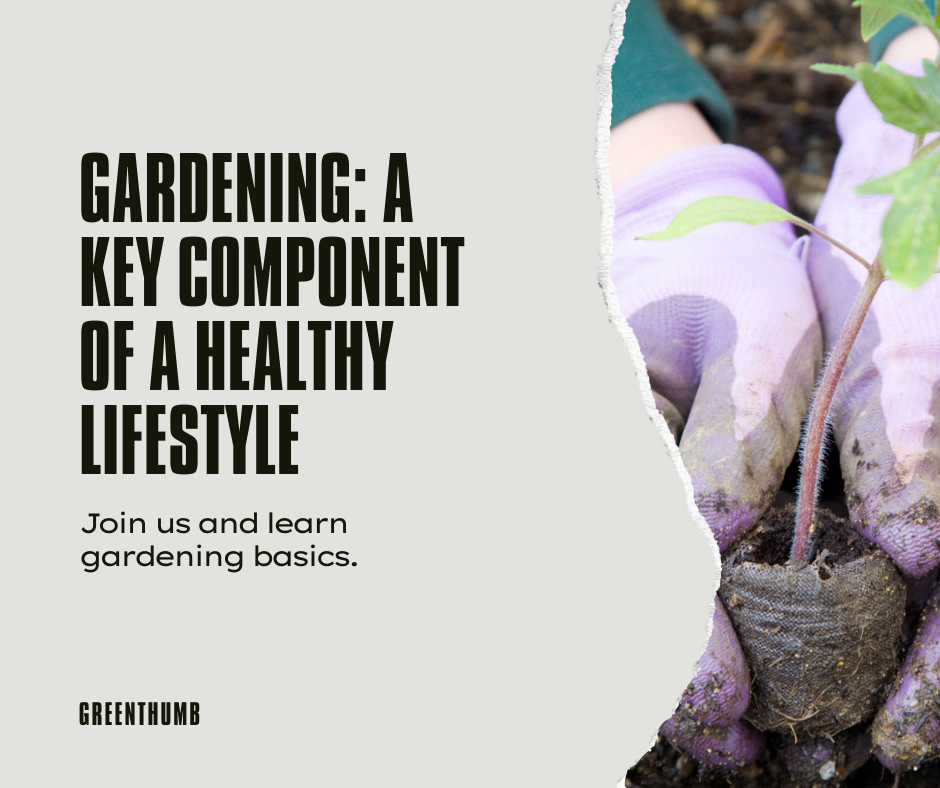
Are you looking for ways to enhance your healthy lifestyle? Look no further than gardening! Not only is it a rewarding hobby, but it also offers numerous health benefits. Here are some practical tips and ideas to help you incorporate gardening into your daily routine and maximize its positive impact on your well-being.
1. Start Small
If you’re new to gardening, don’t overwhelm yourself with a large plot or complicated plants. Begin with a small herb garden or container plants that are easy to maintain. This way, you can gradually build up your gardening skills and confidence.
2. Make Time for Gardening
Set aside dedicated time each week to tend to your garden. Treat it as an appointment with yourself and prioritize it in your schedule. Whether it’s early mornings or weekends, find a time that works best for you and stick to it.
3. Set Realistic Goals
Don’t put too much pressure on yourself to create a picture-perfect garden. Set realistic goals that align with your abilities and available time. Start with manageable tasks, such as weeding, watering, or pruning. As you gain confidence, you can take on more challenging projects.
4. Involve the Whole Family
Gardening can be a fun and educational activity for the whole family. Involve your children or partner in planting seeds, weeding, or harvesting. It’s a great way to spend quality time together while fostering a love for nature.
5. Practice Safe Gardening
Remember to protect yourself while gardening. Wear sunscreen, a hat, and gloves to shield yourself from the sun’s rays and prevent any potential injuries. Also, be mindful of your posture and take regular breaks to stretch and hydrate.
6. Get Creative with Space
If you don’t have a large outdoor area, don’t worry! You can still enjoy gardening by utilizing vertical space or creating a container garden on your balcony or windowsill. Explore creative solutions that suit your living situation.
“Gardening is a great way to connect with nature, reduce stress, and improve overall well-being. With a few simple tips, you can easily incorporate gardening into your healthy lifestyle.”
7. Join a Gardening Community
Consider joining a local gardening group or community project. It’s an excellent opportunity to connect with fellow gardening enthusiasts, share knowledge, and even swap plants or produce. You’ll also be contributing to a sense of community and making a positive impact on the environment.
8. Experiment with Different Plants
Expand your gardening experience by trying out different types of plants. Grow a variety of vegetables, fruits, herbs, or flowers to add diversity to your garden. Not only does this keep things interesting, but it also allows you to enjoy a wide range of health benefits.
9. Embrace the Learning Process
Gardening is an ongoing learning journey. Embrace the process, and don’t be discouraged by failures or setbacks. Learn from them, seek advice from experienced gardeners, and keep improving your skills. With time, you’ll become a proficient gardener.
10. Reflect and Enjoy
Take a moment to appreciate the beauty and tranquility of your garden. Reflect on the progress you’ve made and the joy it brings. Enjoy the fruits of your labor, quite literally, by harvesting and savoring the fresh produce from your garden.
By incorporating gardening into your healthy lifestyle, you’re not only nourishing your body but also nurturing your soul. So grab your shovel, put on your gardening gloves, and let nature be your guide on this incredible journey to wellness.
Stress Reduction through Gardening
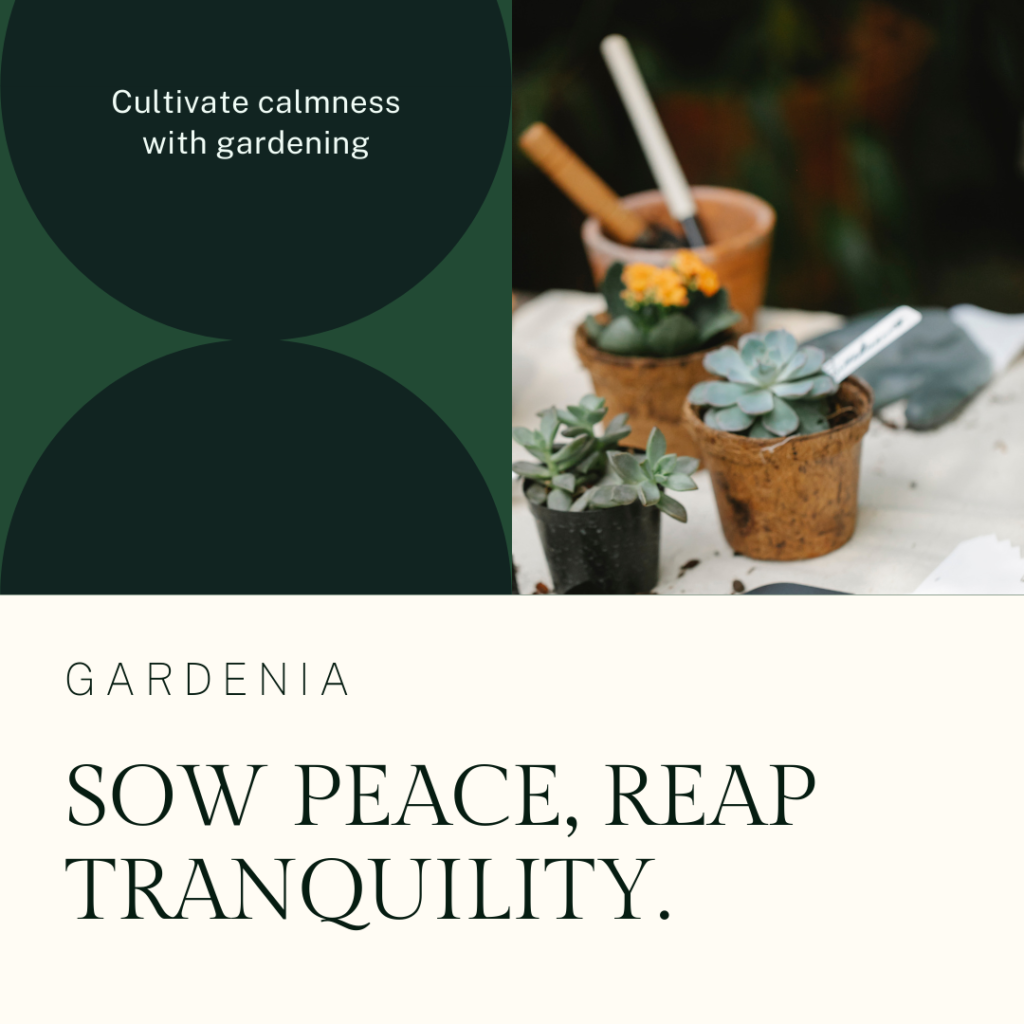
Are you feeling overwhelmed by the stresses of daily life? Gardening can be a valuable tool for managing stress levels and promoting a sense of peace and tranquility. The act of tending to plants and nurturing a garden can have profound effects on your mental well-being, helping you find respite from the demands of everyday life.
Gardening allows you to connect with nature and create a harmonious environment that can be a sanctuary from stress. The calming effects of gardening activities, such as digging in the soil, planting seeds, and caring for plants, can help reduce anxiety and promote relaxation.
When you engage in gardening, your focus shifts from the stressors of daily life to the present moment. This mindful approach to gardening allows you to immerse yourself in the soothing rhythms of nature, providing a welcome break from the constant pressures and worries that can contribute to stress.
Additionally, gardening offers a sense of accomplishment and satisfaction as you witness the growth and development of your plants. This tangible progress can boost your mood and provide a sense of purpose, further reducing stress levels.
“I never imagined that something as simple as gardening could have such a profound impact on my stress levels. Taking care of my plants has become my daily therapy session. The time I spend in my garden allows me to relax, recharge, and find inner peace.” – Sarah
By incorporating gardening into your daily routine, you can establish a positive self-care practice that effectively reduces stress and improves overall well-being. Whether you have a sprawling backyard or a small balcony, there are various strategies you can implement to maximize the stress-reducing effects of gardening:
- Create a garden space that appeals to your senses, incorporating elements such as fragrant flowers, soothing colors, and gentle sounds.
- Practice mindful gardening by focusing on the sensations and activities involved, such as the feel of the soil, the scent of flowers, and the sound of birds chirping.
- Take breaks to simply sit and soak in the beauty of your garden, allowing yourself to fully experience the tranquility it provides.
- Engage in gardening activities that align with your preferences and interests, whether it’s growing vegetables, tending to flowers, or cultivating indoor plants.
- Join a local gardening group or community garden, which can offer not only the pleasure of working together but also a sense of belonging and social support.
Incorporating gardening into your lifestyle can provide a natural and enriching way to combat stress and enhance your overall well-being. By nurturing your garden, you are also nurturing yourself, finding solace and rejuvenation amidst the beauty of nature.
Gardening as Therapy
Gardening is not just a hobby or a way to beautify your outdoor space. It can also serve as a powerful form of therapy, offering numerous benefits for individuals dealing with mental health issues or other challenges. The act of tending to plants and being surrounded by nature can have a profound impact on emotional well-being and overall quality of life.
Studies have shown that gardening activities can promote relaxation, reduce stress levels, and improve mood. The physical act of digging, planting, and caring for plants can serve as a form of meditation, providing a sense of peace and tranquility. Spending time in nature has been proven to boost serotonin and dopamine levels, which are neurotransmitters that help regulate mood and promote feelings of happiness.
“Gardening offers a therapeutic way to connect with nature and escape from the pressures of daily life. It allows individuals to focus on the present moment, fostering mindfulness and a sense of calm.”
Gardening also provides a sense of purpose and accomplishment. Watching plants grow and thrive under your care can instill a sense of pride and satisfaction. This can be particularly impactful for individuals who may be struggling with low self-esteem or feelings of worthlessness.
In addition, gardening offers a unique opportunity for social connection. Joining a gardening club or participating in community gardening projects can create a sense of belonging and camaraderie. It allows individuals to share their passion for plants and gardening with like-minded individuals, fostering a supportive and inclusive community.
Furthermore, individuals with physical disabilities or chronic illnesses can benefit greatly from therapeutic gardening. Engaging in modified gardening activities, such as raised beds or container gardening, can provide a sense of independence, boost self-esteem, and improve physical functioning.
Gardening as therapy is not limited to individuals dealing with mental health issues or disabilities. It is a therapeutic activity that can benefit anyone looking to improve their overall well-being and find solace in nature. So, whether you’re looking to reduce stress, boost your mood, or find a sense of purpose, consider incorporating gardening into your daily routine as a form of therapeutic self-care.
Benefits of Gardening as Therapy
| Benefits | Description |
|---|---|
| Stress reduction | Gardening activities promote relaxation and reduce stress levels. |
| Improved mood | Spending time in nature and tending to plants can boost serotonin and dopamine levels, improving mood and promoting feelings of happiness. |
| Sense of purpose | Watching plants grow and thrive under your care instills a sense of pride and accomplishment, promoting a sense of purpose. |
| Social connection | Joining gardening clubs or community projects creates a sense of belonging and fosters social connection. |
| Physical rehabilitation | Therapeutic gardening provides an opportunity for individuals with disabilities or chronic illnesses to improve physical functioning and boost self-esteem. |
Embrace the therapeutic power of gardening and experience the positive impact it can have on your overall well-being. Connect with nature, find joy in nurturing plants, and let gardening be your therapeutic escape.
Cultivating Emotional Well-being through Gardening
When it comes to nurturing your emotional well-being, gardening can be a powerful and rewarding activity. Connecting with nature and caring for plants has been linked to improved mental and emotional health, providing you with a sense of purpose, tranquility, and fulfillment.
Gardening allows you to create a harmonious environment where you can find solace and peace. The act of tending to plants and watching them grow can be incredibly therapeutic. It provides an escape from the stresses of daily life and offers an opportunity to reconnect with yourself and the natural world.
Studies have shown that gardening can reduce symptoms of anxiety, depression, and stress. Engaging in this nurturing activity releases endorphins, known as the “feel-good” hormones, which can elevate your mood and promote a sense of happiness and contentment.
“In the garden, one uses both the body and the mind to create something beautiful. It’s a form of expression that allows you to channel your emotions and find inner peace.” – Dr. Sarah Thompson, Psychiatrist
Moreover, gardening provides a sense of accomplishment and purpose. The act of nurturing a plant from a seedling to a blooming flower or a thriving vegetable can boost your self-esteem and confidence. It gives you a tangible representation of your efforts and the ability to witness the positive impact of your care and dedication.
Additionally, spending time in nature has been proven to have a calming effect on the mind and body. The fresh air, soothing sounds of birds chirping, and the beauty of the natural surroundings can help reduce stress and promote relaxation. Whether you have a small window garden or a larger outdoor space, immersing yourself in the greenery can create a peaceful oasis in your everyday life.
Gardening also fosters a sense of connection, both with nature and with other people. It provides an opportunity to engage with a supportive community of fellow gardeners, who share a common interest and passion. Participating in gardening clubs, workshops, or volunteering for community gardening projects allows you to build relationships and tap into a valuable support network.
Benefits of Cultivating Emotional Well-being through Gardening:
- Reduces anxiety, depression, and stress
- Boosts mood and promotes happiness
- Enhances self-esteem and confidence
- Provides a sense of purpose and accomplishment
- Promotes relaxation and reduces stress levels
- Fosters a sense of connection and community
FAQ
Q. What are the physical benefits of gardening?
Q. How does gardening support mental health?
Q. Can gardening boost the immune system?
Q. What are the social benefits of gardening?
Q. How does gardening contribute to environmental sustainability?
Q. Any tips for incorporating gardening into a healthy lifestyle?
Q. How can gardening be used for stress reduction?
Q. Is gardening considered a therapeutic activity?
Q. How does gardening support emotional well-being?
Conclusion
Gardening offers numerous benefits for your overall health and well-being. Through the physical activity involved, gardening promotes fitness and contributes to your overall physical health. Besides, it provides mental health benefits, helping to reduce stress levels and improve emotional well-being. Additionally, gardening can support a healthy immune system, leading to better overall health.
Furthermore, gardening is a social activity that fosters a sense of connection and community. Engaging in community gardening projects can have a positive impact on both the environment and social well-being. Gardening also contributes to environmental sustainability, as it promotes the conservation of natural resources.
By incorporating gardening into your healthy lifestyle, you can experience the stress-reducing effects that come from connecting with nature and nurturing plants. Gardening can even be used as a therapeutic activity, providing an outlet for individuals dealing with mental health issues or other challenges.
In summary, gardening positively affects your physical, mental, and social health. It supports a healthy immune system, reduces stress, fosters a sense of community, and contributes to environmental sustainability. So why not embrace gardening as a part of your healthy lifestyle and enjoy the many benefits it has to offer?


